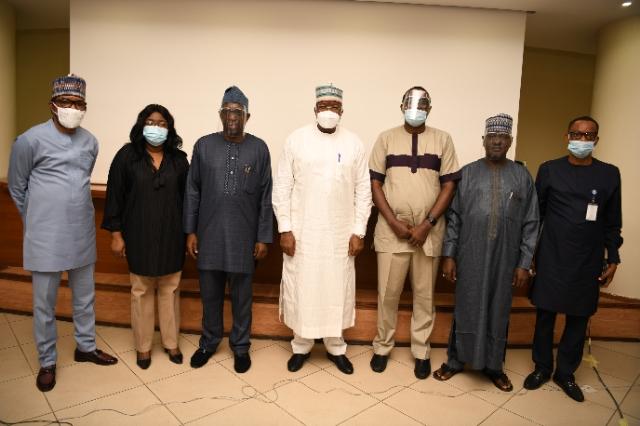Published
4 years agoon

Following the lockdown triggered by the novel Coronavirus pandemic, Nigerian Communications Commission (NCC) has taken steps to fortify the quality of telecommunications service delivery in the country as the country’s telecoms infrastructure started to bear more loads.
According to Muhammed Rudman, chief executive officer of Internet Exchange Point of Nigeria (iXPN), just one week into the lockdown, internet traffic had increased by as much as 10 per cent.
This, occasioned by migration of many activities online, put more pressure on existing telecoms infrastructure in the country, which ordinarily should lead to service breakdown and drop in the quality of service delivery but for NCC’s interventions in some areas.
The commission has revealed the various initiatives it brought to the fore to ensure that operators’ activities remained steady, improved and uninterrupted despite the lockdown that banished movements and most economic activities across Nigeria during the period.
Speaking at the first Virtual Telecom Consumer Parliament (V-TCP) hosted by the commission on Friday, with the theme: “Impact of Covid-19 on Telecoms Service Delivery”, Umar Danbatta, the executive vice chairman of the commission, again, charged operators to prime quality service delivery to the consumers.
The EVC listed critical regulatory actions that had been taken by the commission to mitigate the impact of the COVID-19 pandemic on quality of service (QoS) delivery by the networks to telecom consumers.
Citing an International Telecommunications Union (ITU) report, the EVC said with the pandemic, some telecom operators and platforms are reporting demand spike, especially in data usage and volume of calls, as high as 800 per cent since the outbreak of the pandemic.
Regardless of this, Danbatta said the commission and the mobile network operators needed to play their roles in sustaining quality of service delivery and quality of experience by the consumers, who are critical stakeholders in the telecoms sector.
He said the NCC, in conjunction with the supervising ministry developed e-platforms to handle all requests from the licensees to ensure that regulatory services are provided to sustain service delivery to subscribers.
He said the commission also approved and encouraged resource sharing among network operators and secured Right of Passage (RoP) for all telecommunications companies and suppliers for easy movement during the lockdown.
According to him, these measures enabled the operators to service their base stations and ensured seamless services for telecom consumers who increasingly relied on the networks during the pandemic.
Danbatta further stated that the NCC, working with the ministry is resolving the problem of high cost of Right of Way (RoW) with the Nigerian Governors Forum (NGF), adding that, through such engagements, the state governors have lent their support for a robust broadband infrastructure.
“The commission is hopeful that with the reduction in RoW, which will automatically result in reduction in capital expenditure (CAPEX) by the network operators, telecom companies will sooner than later reciprocate the gesture by making their services more affordable to Nigerians,” he said.
According to Danbatta, regulatory efforts have also resulted in a presidential approval directing security agencies to protect Information and Communication Technology (ICT) and telecom facilities as critical national assets.
He said this has helped to safeguard telecom infrastructure for the greater role telecom has to play with the outbreak of Covid-19 pandemic.
On QoS, he strongly charged the service providers to constantly upgrade and expand their network capacity in order to deliver top-notch services to the 196.38 million subscribers in the country.
Earlier in a presentation, Adeleke Adewolu, the executive commissioner, stakeholder management (ECSM), showed the various Quality of Service (QoS) indicators for the second quarter of the year across the networks.
He also demonstrated the consumer Quality of Experience compared with the parameters based on the voice of the consumer survey (VoxPop) conducted by the commission.
Speaking further, the ECSM highlighted the challenges facing operators, which impact negatively on quality of service to include fibre cuts, vandalism and theft of telecommunications site equipment.
A panel session of telecoms operators, who participated virtually in the Telecoms Consumer Parliament, was held and moderated by Efosa Idehen, the director, consumer affairs, NCC.
The panel session addressed issues of network capacity upgrade, change in consumer data consumption behavior, implementation of agreed Consumer Complaints and Service Level Agreement (CC/SLA), consumer education as well as general issues around quality of service and quality of experience by the over 196 million telecom consumers in the country.














